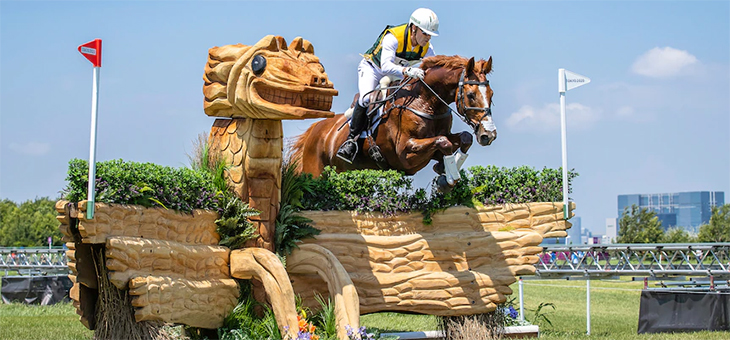Olympian Andrew Hoy has barely unpacked his medals from the Tokyo Olympics, and he is already beginning his campaign to bag a few more at the Paris Games in 2024.
“It started several days ago,” he said.
“There are three medals there to be won, someone has to win them.”
It’s been a year-and-half since Mr Hoy has been able to be with his family at Culcairn in southern New South Wales, the place he still calls home after more than three decades of living in the United Kingdom.
In Tokyo, he became Australia’s oldest Olympic medallist, winning a silver and bronze in the equestrian competition in his eighth Games appearance.
The 62-year-old admits he began to feel his age when it overshadowed his accomplishments.
“Age is purely a number. I know many people are talking about my age but if I dwell on my age, I’m not focusing on what I need to do,” Mr Hoy said.
“I just purely have a focus to go forward and to always keep improving and always be better tomorrow than what I am today.
“I know that age is a big factor for a lot of people but it’s purely a talking point. For me, it’s just a number.”
Turning ageism into a weapon
Ageism isn’t uncommon in sporting culture and coverage, but Mr Hoy says he’s learnt how to harness all his 62 years as his superpower and turn it into a competitive edge over younger athletes.
“When you become older, you become wiser,” he said.
“No young person has wisdom, and the people I am working with in the industry such as my coaches and people that I turn to for advice, many of those people are actually older than I am, but they come with so much wisdom.
“Age is not something to become frightened of, age is something to be proud of.
“I have to be proud of what I’m doing when everyone’s talking about my age.”
But people did want to talk about his age ahead of the Tokyo Olympics, and it took a toll.
Mr Hoy turned off the media because people wanted to look back on his career rather than ahead, despite him feeling the most prepared he had ever felt ahead of an Olympics competition.
“I went through a stage where I just stopped all media for the run into Tokyo,” he said.
“With that comes a lot of emotion when you talk about the journey that’s been involved and the people that’s been involved.
“My focus started to go from what I was actually doing and people were taking me back in time and wanting to know the journey and wanting to talk about it.”
Hopes for more aspiring riders
Paris might be in Mr Hoy’s sights, but Culcairn remains in his heart.
Growing up, it was his goal to work the family land, until it left him burnt out after trying to balance farming and elite level competition after the 1992 Barcelona Olympics, where he won his first gold medal.
The town on sprawling Riverina pastoral plains proudly boasts of Mr Hoy’s achievements.
Its welcome sign is in the process of being updated with his latest medal count.
It’s also where one of his favourite horses, Davey, is buried.
It was Mr Hoy’s pony club horse, which literally carried him into World Championships and Olympic levels.
“That horse was very, very special, in the fact, I had zero knowledge in those days in comparison to now,” he said.
Mr Hoy says pony club is still a fantastic place for young aspiring riders to begin their Olympic dreams.
“If any young person is listening to this and they’ve got a passion for something, they need to just pick up and run with that,” he said.
“My father said to me when I was young if you want to be successful make sure you place good people around you.
“I have always remembered that it’s a complete team effort.”
 © 2020 Australian Broadcasting Corporation. All rights reserved.
© 2020 Australian Broadcasting Corporation. All rights reserved.
ABC Content Disclaimer

